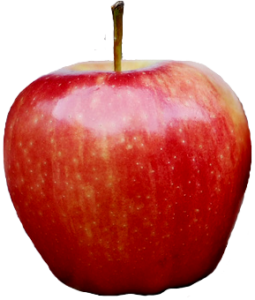 Once again a study found that a diet rich in fruits, vegetables, whole grains, seeds, legumes, nuts, fish, and extra virgin olive oil is beneficial to the huge numbers of microbes living in our gut (the gut microbiome). This type of fiber-rich dietary pattern is generally called the Mediterranean diet.
Once again a study found that a diet rich in fruits, vegetables, whole grains, seeds, legumes, nuts, fish, and extra virgin olive oil is beneficial to the huge numbers of microbes living in our gut (the gut microbiome). This type of fiber-rich dietary pattern is generally called the Mediterranean diet.
The Mediterranean diet is associated with health in a number of ways: lower frailty in elderly persons, lowered risk of death and a number of diseases, as well as lowered levels of inflammation. Chronic inflammation is linked to cancers and a number of diseases - thus the goal is to keep inflammation levels down.
Researchers found that elderly persons eating a Mediterranean style diet for one year had beneficial effects on their gut microbes (after all, they were feeding the good gut microbes), which in turn resulted in less frailty, better cognitive function (including memory), and lower levels of chronic inflammation. There was an increase in beneficial microbes that are associated with health and lower levels of inflammation.
On the other hand, the group of persons eating their usual Western style diet (low in fiber, high in fats , meats, sugar, highly processed foods) did not show beneficial changes in their gut microbiome. They showed negative changes (deterioration) in the type of gut microbes, and also higher levels of chronic inflammation. After all, they were feeding the microbes associated with poor health and inflammation.
What was interesting was that they looked at the gut microbial communities of 612 persons (aged 65-79 years) who lived in five different countries (Poland, Netherlands, UK, France and Italy) - both at the start (baseline) and after a year. At baseline they could see that country-specific patterns in dietary habits were also reflected in the microbiome profiles.
And after a year there were similar positive changes in the gut microbes in all of those eating a Mediterranean style diet, especially with an increase in "keystone species" - those that are especially important for gut health, but also linked to better health and better cognitive (mental) functioning.
Some of the beneficial bacteria that increased in the Mediterranean diet group: Faecalibacterium prausnitzii, along with Roseburia (R.hominis), Eubacterium (E. rectale, E. eligens, E. xylanophilum), Bacteroides thetaiotaomicron ,Anaerostipes hadrus, and Prevotella copri. A majority of these species are associated with health benefits [e.g. production of short chain fatty acids (SCFAs) and lower risk of frailty] and with anti-inflammatory properties. They also are associated with a lower risk for diseases such as type 2 diabetes and colorectal cancer.
In contrast, the control group that ate a normal Western diet (fats, processed foods, low in fiber, high in meat and sugar) had an increase in Ruminococcus torques, Collinsella aerofaciens, Coprococcus comes, Dorea formicigenerans, Clostridium ramosum, Veillonella dispar, Flavonifractor plautii and Actinomyces lingnae. An increase in the abundances of R. torques, C. aerofaciens, C. ramosum and V. dispar have been associated with type 2 diabetes and colorectal cancer, atherosclerosis, cirrhosis, and inflammatory bowel disease.
A key finding was that the findings suggest that eating a Mediterranean style diet "modulates the microbiome in a direction positively associated with health". In other words, the benefit of the diet was that it fed beneficial gut microbes that improved health.
Note that these beneficial microbes are NOT found in any supplements or probiotics. You must eat the fiber-rich whole foods!
From Medical Xpress: Mediterranean diet promotes gut bacteria linked to 'healthy ageing' in older people ...continue reading "Feed Your Gut Microbes With A Mediterranean Diet"


 Those who enjoy a little "potty humor" will like the results of a recent
Those who enjoy a little "potty humor" will like the results of a recent  Once again, a study found that the foods we eat are associated with our risk for breast cancer. Results from a long-running
Once again, a study found that the foods we eat are associated with our risk for breast cancer. Results from a long-running  Once again
Once again  How many times have you heard to eat lots of fruits, vegetables, whole grains, nuts, legumes (beans), and seeds? Study after study finds that eating a diet rich in these foods is linked to all sorts of health benefits. A big reason is that they have lots of fiber - which feeds beneficial microbes in our gut. A recently published review of studies in the prestigious journal Lancet examined studies done over the past 40 years and found numerous health benefits.
How many times have you heard to eat lots of fruits, vegetables, whole grains, nuts, legumes (beans), and seeds? Study after study finds that eating a diet rich in these foods is linked to all sorts of health benefits. A big reason is that they have lots of fiber - which feeds beneficial microbes in our gut. A recently published review of studies in the prestigious journal Lancet examined studies done over the past 40 years and found numerous health benefits.